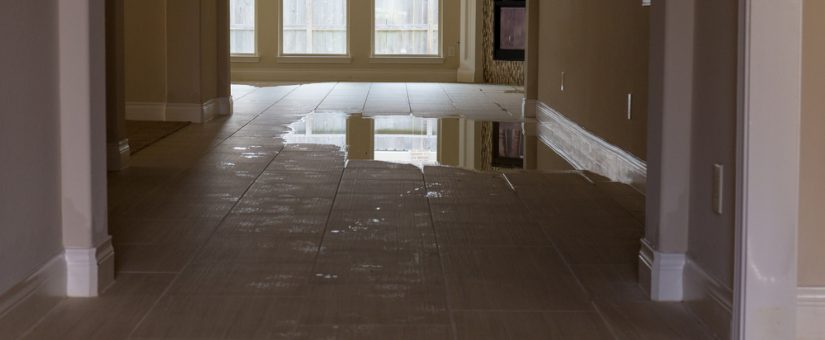The Residential Common Typical Factors of Leakage: In-Depth Analysis
The Residential Common Typical Factors of Leakage: In-Depth Analysis
Blog Article
We've discovered this article relating to Common Water Leaks In House directly below on the web and figured it made perfect sense to talk about it with you on this page.

Leaks not only trigger waste of water but can additionally cause unneeded damage to your house and advertise undesirable organic growth. By looking and also understanding for daily scenarios that cause leaks, you can secure your residence from future leakages and unneeded damages.
Instant temperature adjustments.
Severe temperature modifications in our pipes can trigger them to expand and contract all of a sudden. This growth and tightening might trigger cracks in the pipelines, particularly if the temperature are below freezing. If you kept an eye on exactly how your plumbing works, it would certainly be best. The visibility of the previously mentioned conditions often indicates a high threat.
Rusty water systems
This could be the reason of discoloration or bending on your water pipes. If our plumbing system is old, consider replacing the pipes considering that they are at a higher danger of deterioration than the newer models.
Defective Pipe Joints
The factor at which your pipelines link is regularly the weakest web link in the waterline. Pipeline joints can degrade gradually, resulting in water leaks. The bulk of pipe joints are not easily noticeable. If you have noisy pipelines that make ticking or banging noises, especially when the hot water is activated, your pipe joints are possibly under a lot of stress. It is suggested to have your plumber examine your system yearly.
Intruding roots
Many water leakages start outside the home instead than inside it. You might discover wet spots or sinkholes in your backyard, and that might imply that tree roots are getting into water lines triggering water to permeate out.
Poor Water Connectors
At times, a leakage can be triggered by loose hoses and also pipes that supply your appliances. In instance of a water links leak, you might notice water running straight from the supply line or pools around your home appliances.
Blocked Drains
Obstructed drains might be annoying and inconveniencing, however they can often wind up triggering an overflow resulting in rupture pipelines. Keep eliminating any products that may go down your drains that might block them to stay clear of such aggravations.
All the above are reasons for leakages but not all water leaks result from plumbing leaks; some leaks could originate from roof leakages. All leakages must be fixed promptly to prevent water damage.
Leaks not just trigger waste of water however can also create unneeded damage to your home and also promote unwanted natural growth. By looking and understanding for everyday scenarios that create leakages, you can shield your residence from future leakages as well as unneeded damages. Today, we will certainly look at 6 leakage triggers that might be creating your pipes to drip.
At times, a leak can be created by loose pipes and also pipelines that provide your appliances. In instance of a water connections leak, you might observe water running straight from the supply line or pools around your appliances.
How To Check For Water Leak In Your Home
How To Check for Leaks
The average household's leaks can account for nearly 10,000 gallons of water wasted every year and ten percent of homes have leaks that waste 90 gallons or more per day. Common types of leaks found in the home are worn toilet flappers, dripping faucets, and other leaking valves. These types of leaks are often easy to fix, requiring only a few tools and hardware that can pay for themselves in water savings. Fixing easily corrected household water leaks can save homeowners about 10 percent on their water bills.
To check for leaks in your home, you first need to determine whether you're wasting water and then identify the source of the leak. Here are some tips for finding leaks:
Take a look at your water usage during a colder month, such as January or February. If a family of four exceeds 12,000 gallons per month, there are serious leaks.
Check your water meter before and after a two-hour period when no water is being used. If the meter changes at all, you probably have a leak.
Identify toilet leaks by placing a drop of food coloring in the toilet tank. If any color shows up in the bowl after 10 minutes, you have a leak. (Be sure to flush immediately after the experiment to avoid staining the tank.)
Examine faucet gaskets and pipe fittings for any water on the outside of the pipe to check for surface leaks.
Undetected water leaks can happen without the home or business owner even realizing. If you suspect a water leak, but not able to find the source. It is time to contact a professional water leak detection service, The Leak Doctor.
How To Find a Water Leak In Your Home
https://www.leakdoctor.com/blog/How-To-Check-For-Water-Leak-In-Your-Home_AE197.html

I found that write up about How to Find Water Leaks when browsing on the internet. Do you know about another person who is interested by the topic? Do not hesitate to promote it. I thank you for reading our article about How to Find Water Leaks.
Set Up An Appointment Report this page